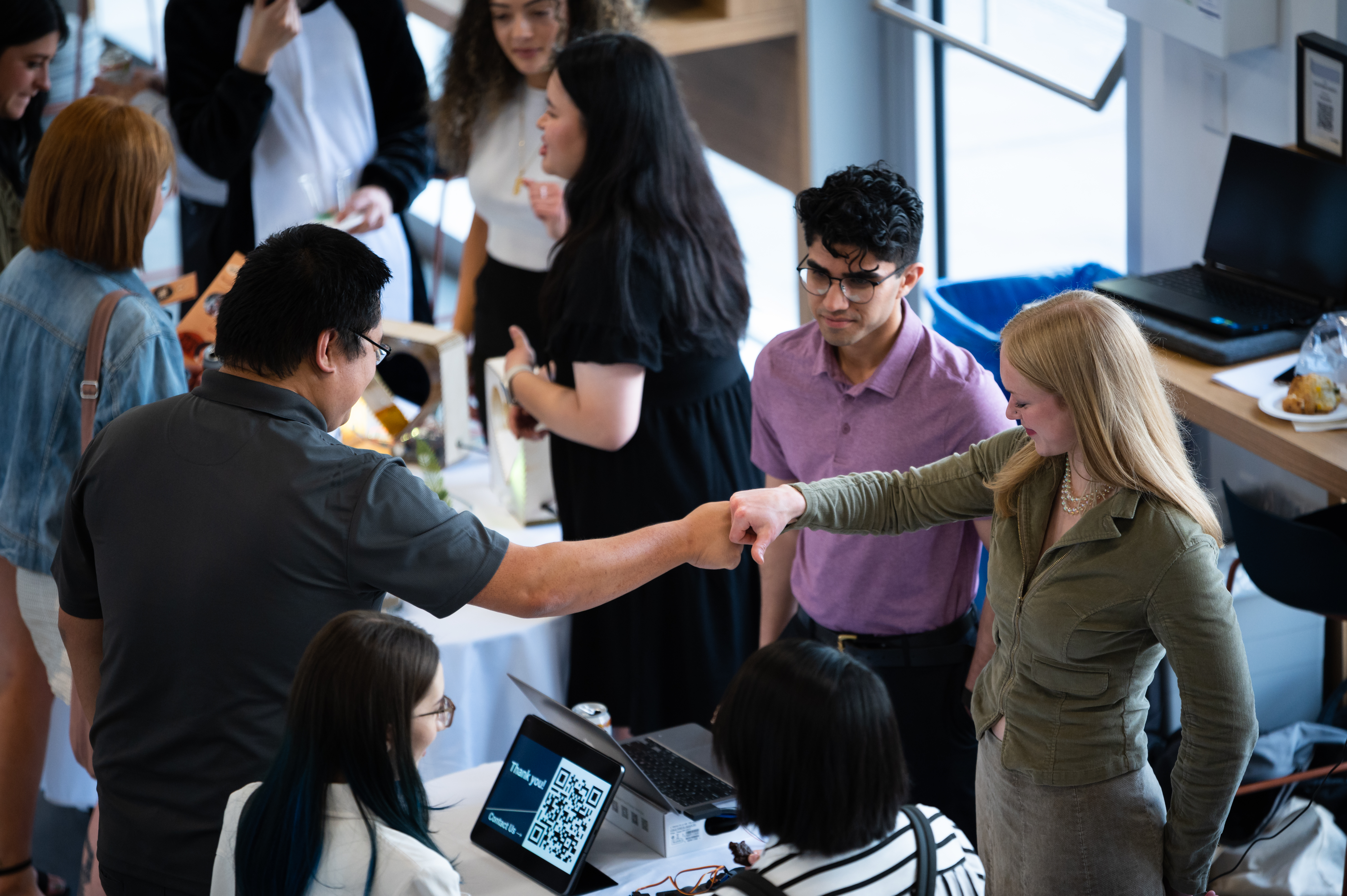
Igniting Health Technology Innovation: The HealthTech Challenge
Empowering Students to leverage emerging technologies to transform health
The inaugural HealthTech Challenge at Mount Royal University (MRU), hosted by the Institute for Innovation and Entrepreneurship, recently concluded, showcasing the exceptional potential of three cross-disciplinary student teams in driving cutting-edge advancements in health technology. Teams presented innovative solutions to challenges in aging, mental health, and mobility, using emerging technologies such as robotics, AI/ML, the internet of things devices, and additive manufacturing. Funded by the John Dobson Foundation and Alberta Innovates, students unveiled their projects and transformative ideas to a Platform Calgary audience of current students, alumni, staff, faculty, and members of the Calgary tech and innovation community
During the 13-week program, participants gained skills in innovation, product management, hardware and software development, and project management, while working in cross-disciplinary teams. Each team received the support of dedicated faculty mentors, including faculty member Jordan Kidney, senior student mentors, and staff support from the MRU Maker and Media Commons to build on the skills they have learned during their university careers so far, and learn new ones, such as 3D printing, soldering, software development, and CNC.
In order to understand their problem and customer, participants received briefings on aging, mental health, and mobility from award-winning MRU research faculty, including Dr. Christy Tomkins-Lane, founder, venture capitalist, and Department Chair (on leave) of Health and Physical Education, Dr. David Legg, past President of the Canadian Paralympic Committee, Jocelyn Rempel, M.N, Chair in Older Adult Health, and Dr. Janet Miller, Counsellor at MRU Wellness Services and Full Professor. Participants gained invaluable insights into developing purpose-driven technologies that address the needs of affected populations and helped them develop user-empathy and understanding.
In order to understand product-customer fit and opportunities for further developing their projects, students were connected with startup founders and experts from the Calgary startup community and all over the world, including Pierre Wijdenes, CPO & co-founder of Neuraura, Savana Radley, founder of Radley Robots, and Terri Bryant, founder of Guide Beauty. Connecting students to community mentors is critical for understanding complex community needs and nascent technologies, and allows students to gain experience that will differentiate them to future employers as high-impact talent. During the program, 4 students received job offers, and 2 have received roles at Calgary startups Showpass and Alethea Medical, and one at the Institute for Innovation and Entrepreneurship.
The HealthTech Challenge, a work-integrated experiential learning program, provided students with a $1000 stipend for completing the program, as well as a $1000 build budget, allowing students to ideate freely with advanced technologies they haven’t worked on in the classroom without the fear of breaking hardware they may not be able to personally afford and test.
Triumph Aramunde, software lead for team aging shared, "COVID-19 ended my high school pre-engineering classes, crushing my Mark Rober-inspired DIY gadget creation dreams, or so I thought. Through the experiment-proof budget, community of mentors, and motivating stipend, this university program was transformative in providing the resources needed to direct my passion and skills toward tackling the larger issues society faces today. I’m excited to continue to build my innovation skills by spending part of my stipend on a 3D printer, something I wouldn’t have been able to afford before the challenge.”
Projects:
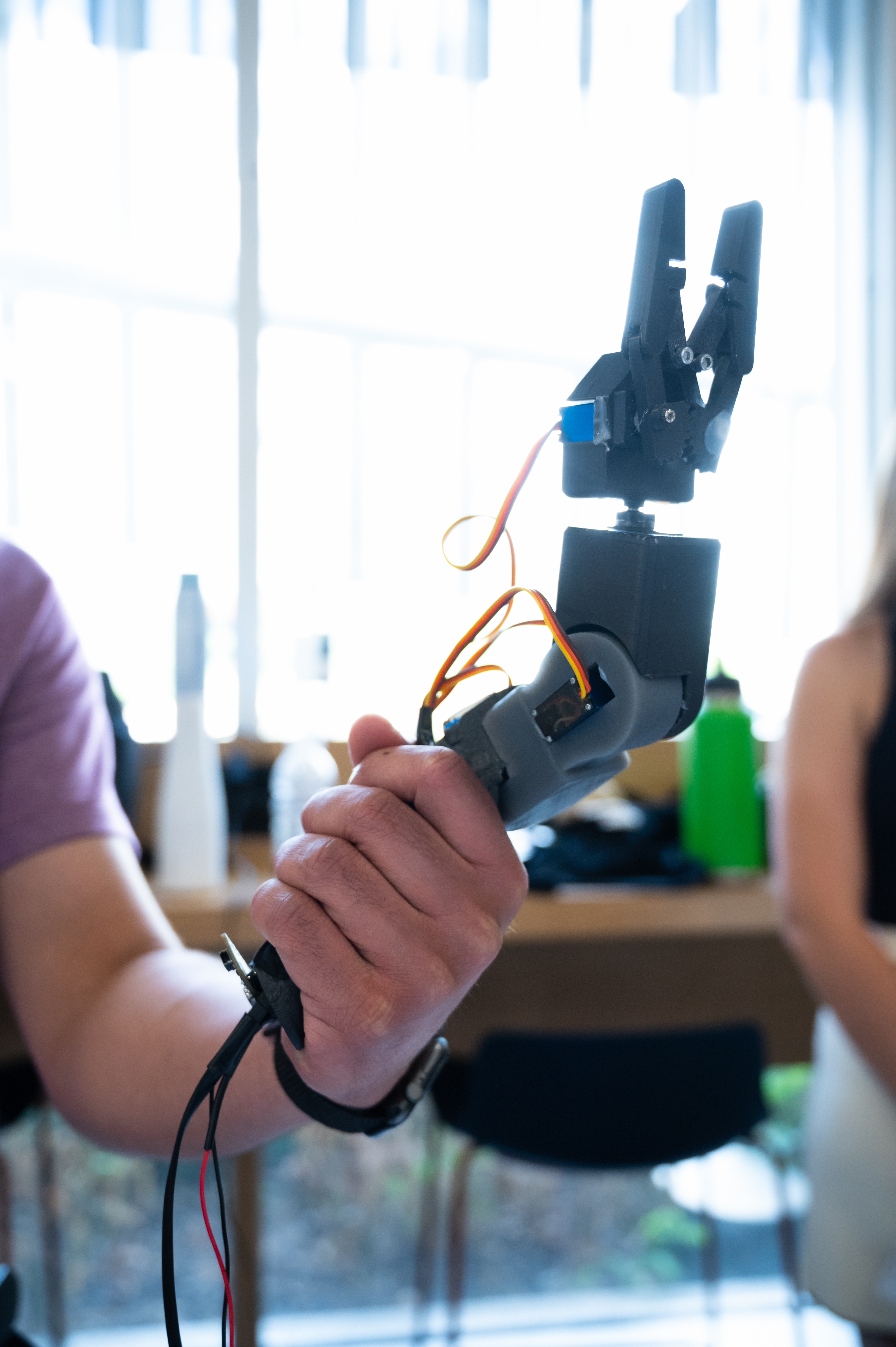 |
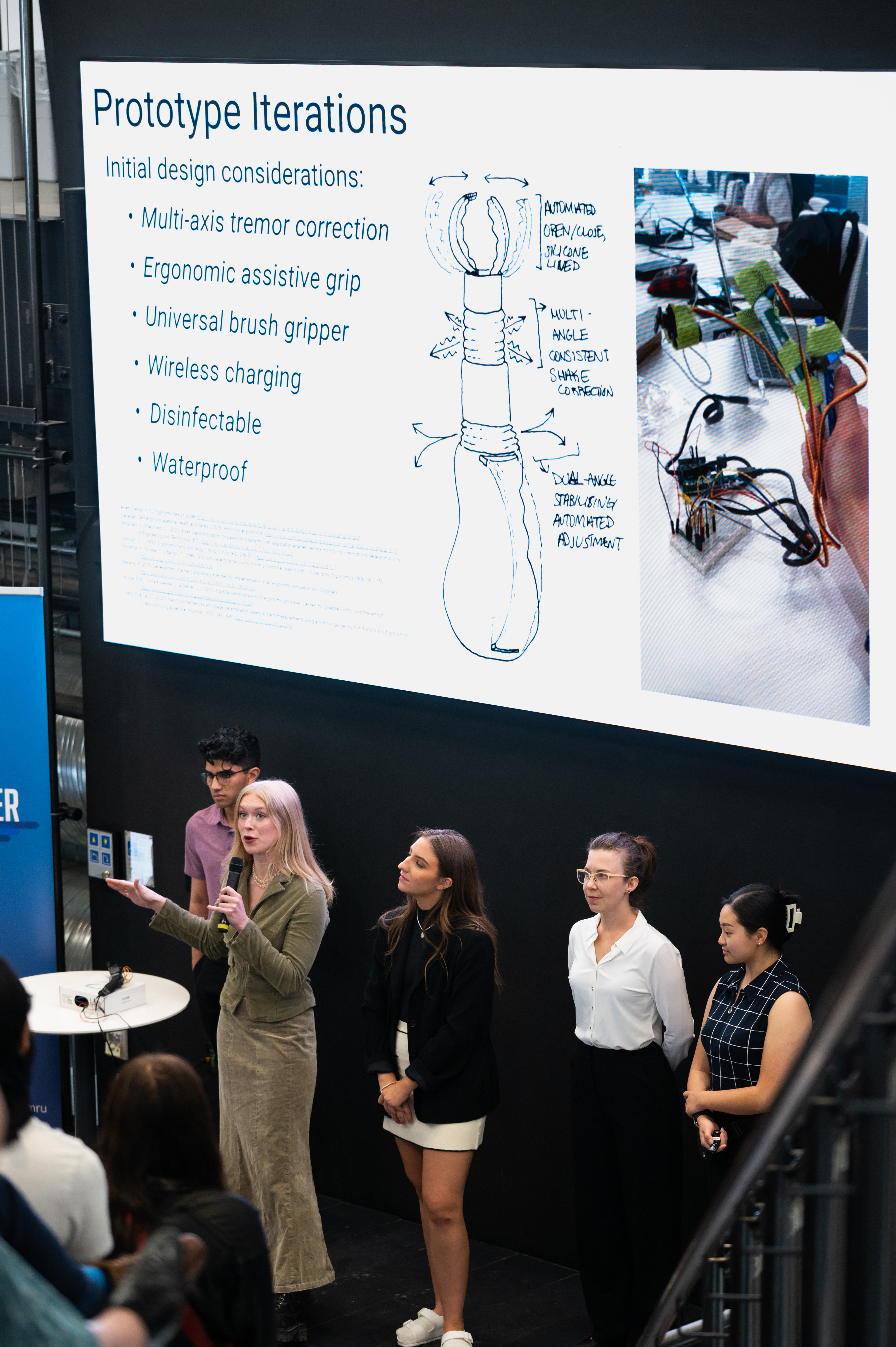 |
Team Mobility
24.91 million young adults are affected by fine tremors, making everyday tasks like shaving or applying makeup incredibly challenging. The Adaptive Brush is a robotic arm leveraging gyroscopic and motion reduction technologies for multi-axis tremor correction for the application of makeup. Brand and brush agnostic, the universal brush gripper allows users to apply makeup with ease and accuracy, removing the need for young adults experiencing fine tremors to feel like they stand out because grooming activities are difficult without assistance. Team Mobility was formed by nursing student and SAMRU Governor, Nancy Tran, computer science/computer information systems students, Marusia Luciuk and Sunny Parmar, physical literacy graduate, Talis Aurini, public relations graduate, Georgia Hargreaves-Kessler, and student mentor, Taylor Amy.
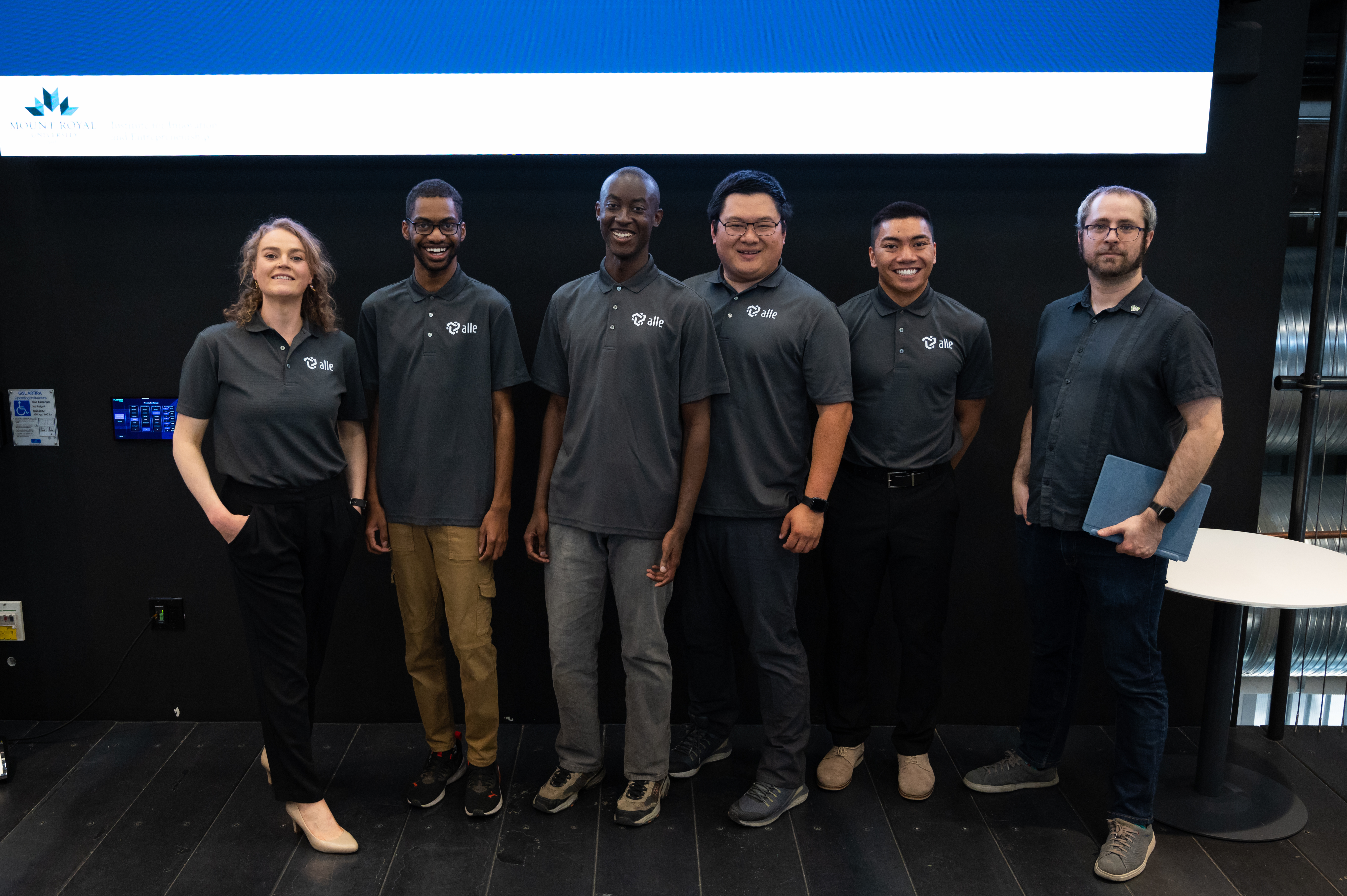 |
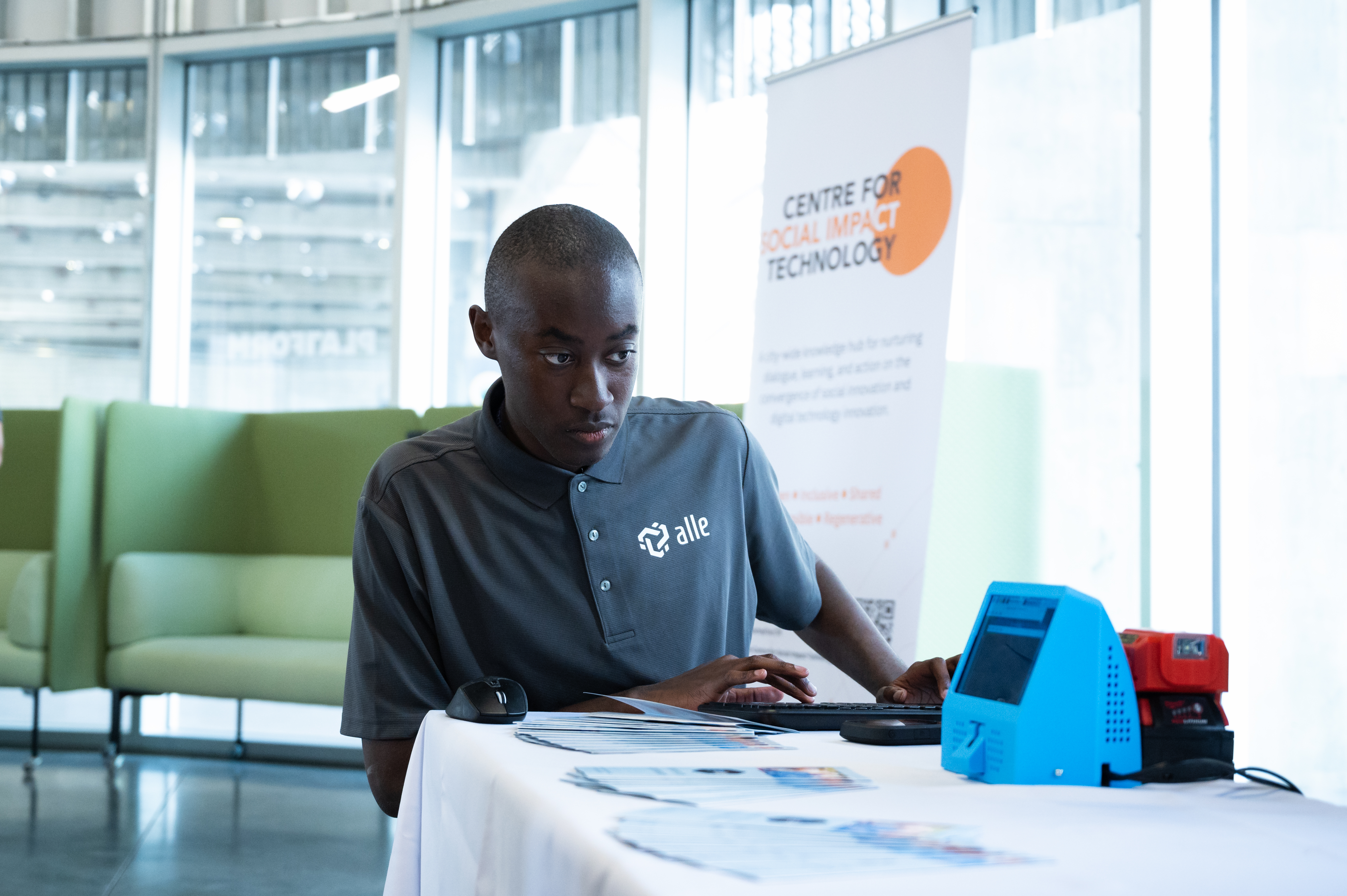 |
Team Aging
Developed by computer science students Jaunie Williams and Triumph Aramunde, international education graduate, Erin Creegan-Dougherty, nursing student, Mike Chen, physical literacy student Mhartee Parada, and student mentor, Jonathan Axford, Alle is an AI-enabled device focused on increasing socialization for older adults through personalized reminders and medical alerts delivered by friends and family. Alle offers an interactive dashboard, conversations with continuity through a ChatGPT-enabled AI assistant, wellness reminders, and the ability to send video chats and text messages to loved ones. The team plans to continue to build on their prototype as an early startup and has applied to pitch at the National Impact Challenge Bold Innovations for Living Pitch Competition for a chance at $25,000 in funding from SE Health and Age-Well, with the support of their mentor, Jocelyn Rempel, and the Institute for Innovation and Entrepreneurship LaunchPad program.
“My favourite moment was trying to reverse engineer a $40 speaker: slowly taking it apart and rewiring it made me feel like a sorcerer, and eventually I could write to it using Hertz. It was so cool. You had to be there! I broke it an hour later when trying to disassemble the other side to read from it. If it was my money, I would stress about that for weeks but because of the Challenge’s generous fund, I see it as one of the most valuable learning experiences I have ever had. I look back at that moment in the Maker’s Space with pride in my ability to quickly learn how to safely dismantle, accurately solder, and intuitively program an object I have seldom experimented with before. “ - Jaunie Williams, hardware lead for team aging
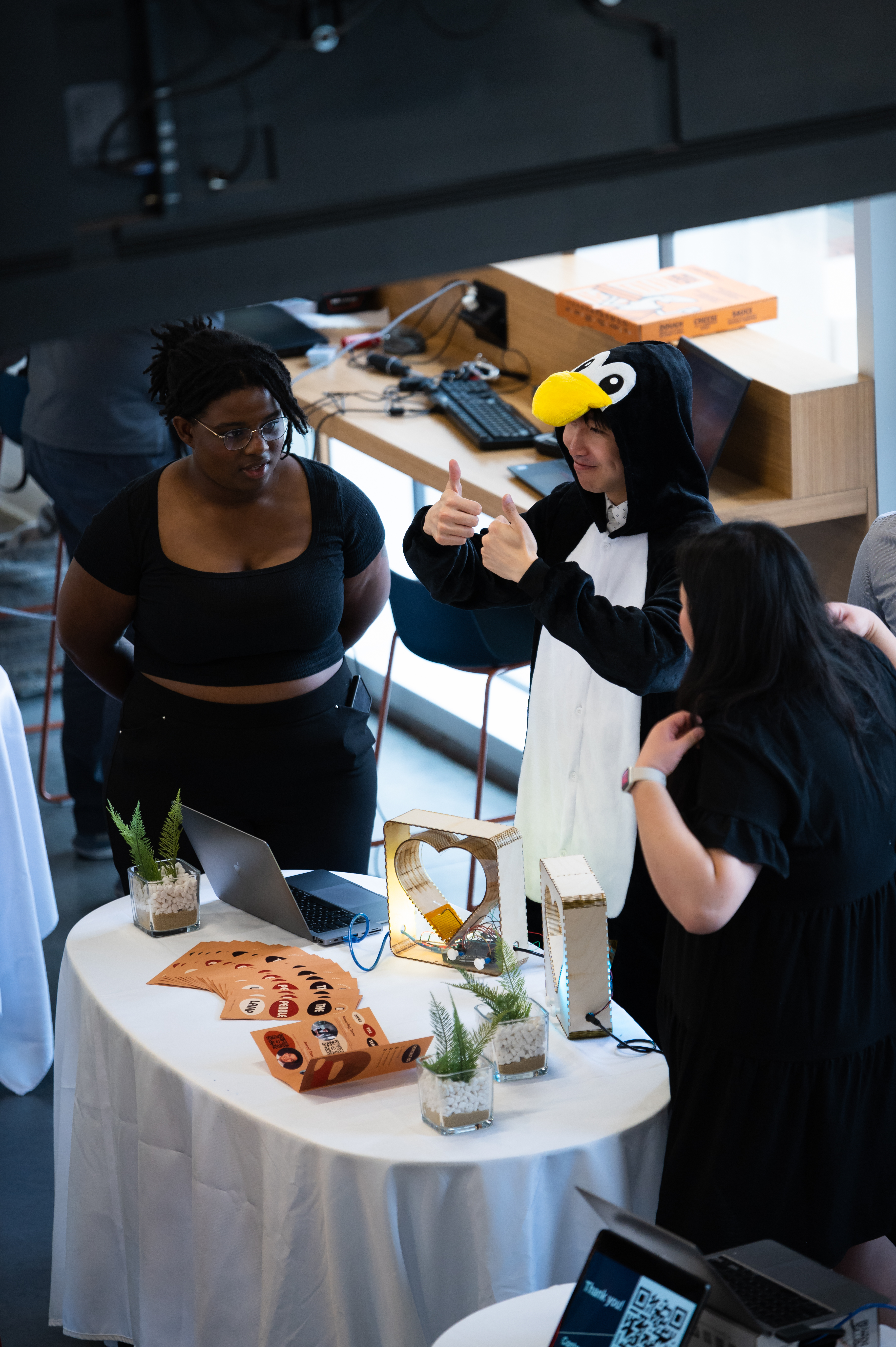 |
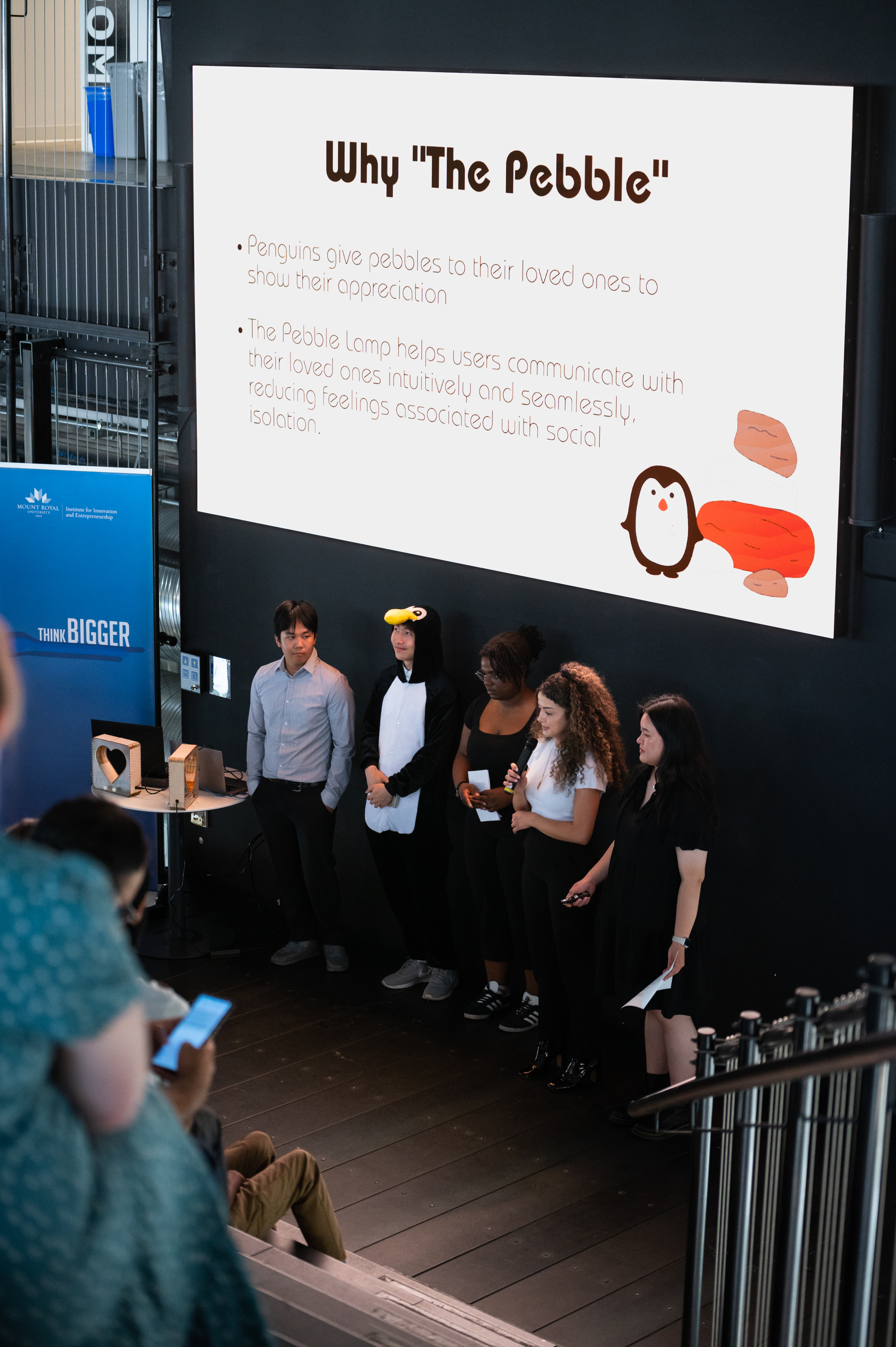 |
Team Mental Health
The Pebble lamp, named for a token penguins share with each other during mating, allows friends and loved ones to connect over long distances by tapping the lamp to let each other know how they’re feeling. Yellow might mean something fantastic has happened, while blue might mean “I’m having a rough day.” The central heart feature of the lamp heats up to share a bit of much-needed warmth between loved ones when a hug isn’t available. Developed by marketing graduate, Nouha Ezzine, nursing graduate and Centennial gold medal winner, Calla Ha, computer science/computer information systems students, Jarod Dacocos, Dara Akitoye, and Manning Tran, and student mentor, Izabelle Guevara, the Pebble lamp will remain an exciting prototype for now but has inspired the whole team to explore new hardware projects in the future.
The HealthTech Challenge is expected to return during the 2023/2024 academic year for the development of even more exciting health technologies in different focus areas. The Institute for Innovation and Entrepreneurship would like to thank our mentors, partners AC Robotics, the Centre for Social Impact Technology, the Mount Royal University Riddell Library & Learning Centre, and our funders, Alberta Innovates and the John Dobson Foundation.
 |
 |
